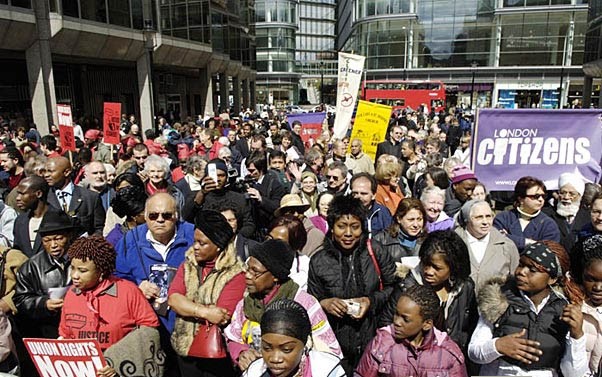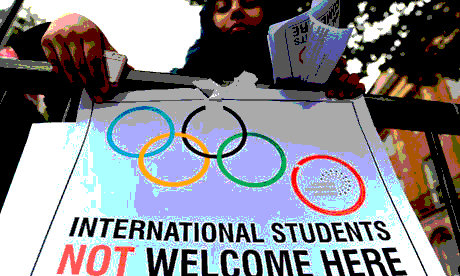If in July 2017 landings were half of those in July 2016, August almost saw a blockade: less than 4,000 people arrived from Libya. In September landings were still at a low level compared to previous years, but picked up, at just over 6,000 people arriving in Italy. In recompense, Italian conservative forces have had to shift their the horror at the mass arrivals, and the supposed collusion of NGOs and the Coast Guard with smugglers, onto other expressions of popular racism. The atmosphere in Italy continues to smoulder with the xenophobic hatred which has been stirred up for years, but also a maturing, more sophisticated right-wing political discourse.
The old xenophobia has its outlets: migrants are blamed for bringing malaria, for obligatory vaccinations, for sexual assaults. Islamophobia is rife. The past two weeks have seen a relative increase in the number of arrivals directly from Tunisia; the figures till October 2nd show just under 3,000 arrivals from Tunisia and Algeria, compared to just over 500 in 2016. With an increase in North Africans arriving, the old fear of Islamic terrorist cells slipping in with the boats has been resurrected, including by the new mayor of Lampedusa. But this Islamophobic reaction aside, the increase in landings from countries other than Libya of course also raises the question of whether one of the effects of the Libya-Italy deal has been the shifting in the migrant route away from Libya itself.
The so-called “phantom landings” – in which Sicilian villagers awake one morning to find an empty wooden boat on the beach, with some abandoned life jackets and wet clothes – have been a constant for many years. Given the diplomatic agreement between Italy and Tunisia which provides for the immediate deportation of all illegally arriving Tunisian citizens (despite the patent illegality of such deportations), Tunisians generally avoid the Libyan route and consequent interception by the Coast Guard, instead attempting to arrive directly on Italian shores in smaller, sturdier vessels. A recent spike of reporting on such landings does not prove, however, whether departures have increased, or if there has simply been a shift of journalistic attention. What is certainly true is that more Tunisians have been intercepted at the coast by Italian police, arrested and taken to the Hotspots. It is also true that given this higher number of detainees, the usual practice of immediately deporting the vast majority of intercepted Tunisians has had to be abandoned, mainly because deportation is extremely costly. Instead, hundreds of Tunisians have been given the same treatment as Moroccan citizens, and left on the streets with an expulsion notice in their hand. In a bout of cruel, sadistic irony, the overcrowded Hotspot on Lampedusa was emptied out of its Tunisian detainees a few days ago in preparation for the official visits that would coincide with October 3rd, a national day of remembrance for the 367 migrants who died off the coast of Lampedusa in 2013.
The Tunisians who are being cleared out of the Hotspots in Agrigento and Lampedusa then have to find their way to the European metropoli, and their futures, without any further support. There have been two reports in recent days of large groups of Tunisian citizens being thrown off the train between Agrigento and Palermo while attempting to enact a mass ticket evasion. All of this does not mean that the route from Libya has been diverted to Tunisia however. Instead, it means either that the Tunisian route has become more popular for Tunisians (partly supported by reports of mass arrests of departing migrants and their traffickers in Tunisia itself), or that with less police attention focussed on port landings, the human labour-power of the border controls has been refocused on the “phantom landings”, that is, the beaches. It seems likely that both claims are true. There have similarly been sporadic arrivals from Algeria (including in Sardinia), Morocco and from Egypt, and rumours that the route from Libya is shifting. The data is extremely unreliable however, as the official statistics only include those who have entered illegally and been caught.
This is part of a much more general problem in discussions and analyses of migration into Europe: the inability, due to both sound and paranoid reasoning, to discuss criminality. Criminalisation has found a solid place in the discourse, as it coincides with the creation of non-Europeans as victims. But knowing acts of criminality and subterfuge are themselves rarely discussed, or indeed any action which might communicate the existence of a subjectivity other than a hopeful victim forced into acts of reluctant disobedience.
Asylum seeker hostels across Italy continue to be sites of struggle. Asylum seekers frequently protest against the conditions in the hostels, but the demands made break this image of victimhood, and so are often purposefully ignored by activists and humanitarian associations who feel penned in by rising conservative forces. These demands include free wifi, better food and pocket money (a kind of guaranteed, if very low, wage). Aside from a spate of attacks by the Northern League and other right wing forces over 2015 and 2016, these demands had their greatest amplification through the music of Bello Figo, a young West African rapper who has made some excellently ironic videos about not paying rent, getting free wifi and enjoying Italian proletarian culture.
And so to return to the right wing’s developing political discourse. The consequence of the left’s inability to discuss the advanced demands of the African and Asian working class in the asylum seeker hostels, but instead to cling onto the image of the victimised refugee who needs saving by good Christians, are now being seen in the strengthening and maturing of the right’s own rhetoric. Thankfully there are only very occasional reports of violent attacks on asylum seeker hostels, as it seems that there is no extremist fascist group which is targeting them as has happened in Germany. Nonetheless, there are popular racist organisations (such as Casa Pound and Talos) and racist political parties (Northern League, Forza Italia, Five Star Movement) – who have organised political opposition both on the streets and within institutions. Small hostels have been closed down, such as in Agrigento where recently the Five Star mayor’s opposition was backed by an alliance of shopkeepers.
The right-wing protests are increasingly finding expression as opposition to the businesses profiting from the hostels. This method of covering up xenophobia has the potential to create a significant shift in discourse. Over the past two years, there have been significant anti-mafia investigations into large-scale corruption within the hostel sector. These investigations have not been picked up in any significant way by the Italian left, and instead it appears that the right might end up utilising an anti-mafia sentiment for its own racist and conservative ends. Recent protests by the right have included banners saying “against the migrant business”, or have been directed at mismanagement by local Prefectures sending “too many” asylum seekers to the same place – even if too many means the difference between 50 and 100 people in a town of several thousand. That is, the exposure of the Italian ruling class’s extraordinary victory in profiting from asylum seekers, partly through the transferal of Mafia-governmental corruption into the hostel sector, is being claimed as a discourse for a racist petit-bourgeoisie rather than an anti-capitalist left.



